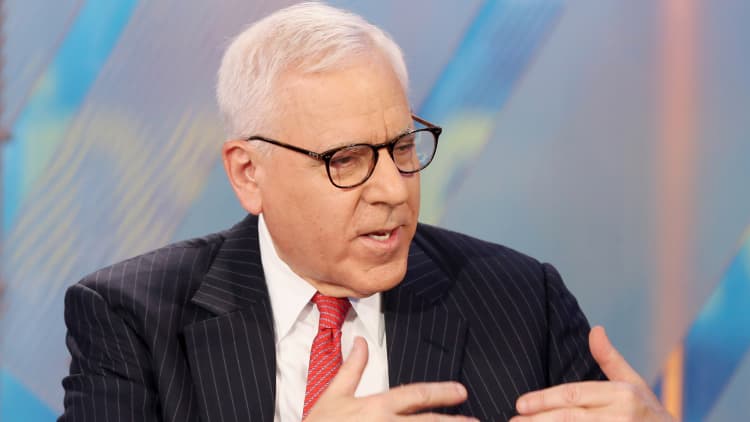
Private equity billionaire David Rubenstein told CNBC on Tuesday that he believes the U.S. and China will be able to complete the "phase one" trade deal that was reached in principle last month.
"'Phase one' is not everything, but it's enough to get people feeling that this is not a big issue for the economy for the next year or so," said the co-founder and co-executive chairman of The Carlyle Group, which has $222 billion of assets under management.
According to Reuters, a U.S. official said the fate of new mid-December tariffs is being considered as part of the negotiations with China on getting to a place where President Donald Trump and Chinese President Xi Jinping can sign the agreement, perhaps as soon as later this month.
The trade war between the world's two largest economies has been going on for more than a year, resulting in escalating tariffs on each other's imports.
The bigger issues around the communist Chinese government propping up Beijing's technology ambitions in artificial intelligence and semiconductor design won't get resolved by year-end, predicted Rubenstein, who through Carlyle investments has done extensive business in China.
Rubenstein, speaking with CNBC's Leslie Picker on Tuesday from the Greenwich Economic Forum, also said he does not see a U.S. recession in 2020. But he added that such a scenario, of course, could be derailed by some unforeseen negative geopolitical event.
— Reuters contributed to this report.


